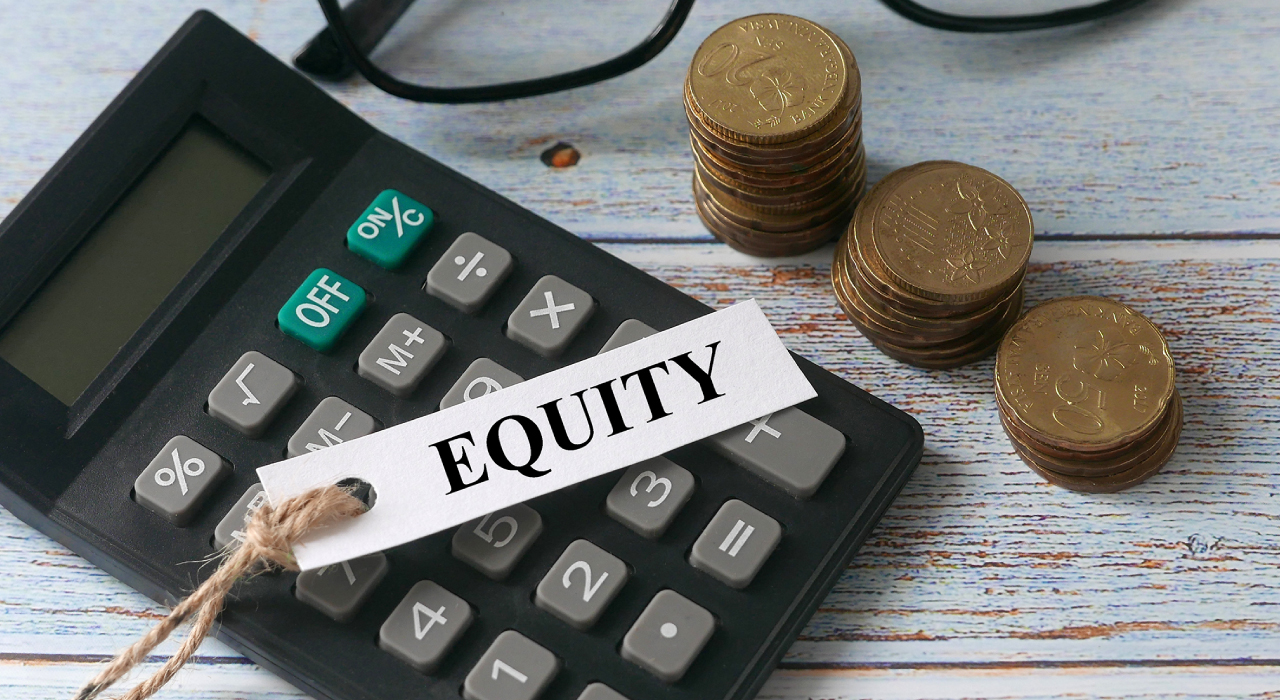As a small business owner, you may have heard the term “equity” thrown around in conversations about finance and accounting. But what is equity in accounting, and why is it important for your business?
In this article, we’ll explore what business equity is and how it represents the value of your small business. We’ll also delve into how business equity is calculated and the various factors that can affect a business’s equity position. By understanding what is equity in business, small business owners can make informed decisions that will help their companies grow and thrive.
What is Equity in Business or What is Equity in Accounting?
Business equity refers to the value of the assets that a business owner has invested in their company. This includes any money that the owner has put into the business, as well as any assets that the business has acquired over time. Equity is essentially the owner’s share of the business’s assets, and it is a crucial factor in determining the value of the business.
Equity can be thought of as a type of ownership in the business. The owner’s equity represents their share of the business’s assets after all liabilities have been paid off. This includes any loans or debts that the business may have incurred over time. The value of the equity will fluctuate over time, depending on the financial health of the business and any changes to its assets or liabilities.
Equity can be broken down into two main types: Common Equity and Preferred Equity.
Common Equity refers to the ownership stake that is held by the company’s common shareholders. Common shareholders typically have voting rights in the company and are entitled to a share of the company’s profits. Preferred Equity, on the other hand, refers to an ownership stake that has certain preferential rights, such as a priority claim to dividends or assets in the event of a liquidation.
Equity is an essential aspect of a company’s financial structure. It provides a source of funding for the company and allows shareholders to share in the company’s success.
How is Business Equity Determined?
Business equity is determined by this simple equation:
Equity = Assets – Liabilities
This calculation explains what is equity in accounting by determining the company’s net worth or shareholder equity.
For example, if a company has assets worth AED 500,000 and liabilities of AED 200,000, the company’s equity would be AED 300,000.
Since the equity is more than zero, it is referred to as Positive Equity.
On the flip side, Negative Equity is a situation where a company’s liabilities exceed its assets. This means that the company owes more than it owns, resulting in a negative balance in the shareholders’ equity section of the balance sheet.
For example, a small business has AED 100,000 in assets, including cash, inventory, and equipment, and AED 150,000 in liabilities, including accounts payable, loans, and taxes owed. In this case, the business has negative equity of AED 50,000, which is calculated as assets minus liabilities (AED 100,000 – AED 150,000 = – AED 50,000).
Negative equity can occur due to a variety of reasons, such as losses, high debt levels, or poor financial management. It can be a sign of financial distress and may limit a company’s ability to raise capital or obtain loans in the future.
Why is Business Equity Important?
Now that we know owners equity meaning, let’s understand why business equity is important for several reasons:
It can act as a source of funding: Business equity represents the ownership stake in a company, and it can be sold or transferred to raise funds. This can be a valuable source of capital for a small business that is looking to expand or invest in new opportunities.
It determines the Return on Investment: Shareholders expect a return on their investment, and business equity represents their ownership stake in the company. As the company’s value increases, so does the value of the shareholders’ equity. This can lead to increased dividends, stock price appreciation, or both.
It influences the company’s financial decisions: Business equity is a key factor in the company’s financial decisions. For example, a company that has a significant amount of equity may be more likely to take on debt to finance its growth or invest in new opportunities. On the other hand, a company with a low amount of equity may be more conservative in its financial decisions and focus on generating profits to increase its equity.
It impacts the company’s ability to secure funding: Business equity can impact a company’s ability to secure funding. Lenders and investors typically look at a company’s equity when making financing decisions. A company with a higher amount of equity may be viewed as less risky and more likely to receive financing.
It represents the company’s value: Business Equity represents the company’s value, and it is an important factor in determining the company’s worth. It can be used as a benchmark to compare the company’s performance to its competitors or to evaluate the company’s growth potential.
What Factors Affect Business Equity?
There are several factors that can affect a business’s equity position. These include:
Revenue: A business’s revenue can have a direct impact on its equity position, as it affects the number of assets that the business has.
Expenses: Similarly, a business’s expenses can impact its equity position by reducing the number of assets that it has.
Investments: Any investments that a business makes can impact its equity position, as it affects the overall value of the business’s assets.
Liabilities: As mentioned earlier, a business’s liabilities can have a significant impact on its equity position. If a business has a high level of debt, its equity position may be lower than if it had less debt.
Profitability: A business’s profitability can also impact its equity position. If a business is consistently profitable, it may have a higher equity position than a business that is struggling to make a profit.
Capital contributions: Any additional capital contributions made by the owner or investors can impact the business’s equity position.
Depreciation: Depreciation is a non-cash expense that can impact a business’s equity position. As assets depreciate over time, their value decreases, which can lower the overall value of the business’s assets.
Economic conditions: Economic conditions, such as changes in interest rates or market volatility, can also impact a business’s equity position.
Understanding these factors and how they impact a business’s equity position is essential for small business owners. By keeping a close eye on their equity position, owners can make informed decisions about financing, growth, and risk management.
How Can Small Business Owners Increase Their Equity Position?
Understanding what is equity in accounting is only the first step, business owners should take some strategic decisions to increase their equity position over time. These include:
Retaining earnings: By retaining a portion of their earnings instead of distributing them as dividends, small business owners can reinvest in the business and increase its overall equity position.
Reducing debt: As mentioned earlier, high levels of debt can lower a business’s equity position. By reducing debt over time, owners can increase their equity position and improve their overall financial health.
Increasing profitability: A more profitable business will have a higher equity position than a less profitable one. By focusing on increasing profitability through revenue growth, cost reductions, and other strategies, small business owners can improve their equity position over time.
Making strategic investments: Investing in assets that will appreciate in value over time can help increase a business’s equity position. This can include investments in equipment, real estate, or other assets that will provide long-term value to the business.
Issuing stock: If a business is looking to raise capital, it can issue stock or other ownership units to investors. This can increase the business’s equity position and provide additional funds for growth and expansion.
Conclusion
We hope that this article has answered the question ‘What is equity in accounting’ or ‘What is equity in business’ more clearly to you. To sum it up, business equity is a crucial component of any small business, representing the value and ownership stake in the company. Understanding and managing your business equity can have a significant impact on your business’s growth and financial success.
If you need help managing your accounting and financial statements to increase your business equity, we encourage you to get in touch with us at Nair & Nelliyatt Chartered Accountants – one of the leading accounting firms in Dubai. We can provide valuable insights and guidance to help you make informed financial decisions, control costs, and increase your revenue.
Contact us today at info@nn-ca.com or +97143577678 to learn more about our accounting services and how we can help you grow your business equity. Let’s work together to ensure the long-term success of your business.




